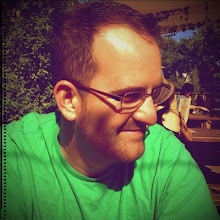Friday, February 17, 2006
Reconsidering inherited suppositions is tricky business. A supposition is an assumption, a foundational belief that generally goes unquestioned. It is something one supposes is true. Most of us form supposition by experience. In my life, I have never once started to float away from the face of the earth, so I suppose that the force of gravity is eternally in effect. I’ve never questioned that belief.
If we all had exactly the same experiences, wouldn’t it follow logically that we would all come to the same conclusions as well? That we would believe the same things? This idea drives utopian and communist philosophies. It also fails miserably, because it does not recognize the variable factors of interpretation or temperament. Take 100 newborn babies, place them in the exact same situation with the same influences and same schedules and same wallpaper in their same-sized rooms and you still will not have 100 identical worldviews or ideologies. That’s because people interpret their experiences differently, based on things like temperament, or personality, or proclivities that are innate to them. Some things aren’t learned.
How do you reason with belief, when belief is nothing if not illogical? Oh, belief may be based on the most thorough observation, it may be rooted in cold, hard fact, it may have been engendered by the most obvious of circumstances, but when it comes down to it, belief is completely personal. I may be giving a lecture about an apple sitting on the table in front of me. What I see is a red, ripe, clean piece of fruit. To the students on the other side of the apple, however, my words may sound like nonsense, because the half that they see was eaten yesterday, and is now brown and dried-out, with a fly picking at what’s left. Both I and my students fully believe we are correct in our suppositions, which are based on our experience & interpretation. When it comes down to it, it doesn’t matter what is; what matters is what each of us believes about what is.
Some tell me I am assigning significance to my ideas of mystery and God. That there is no meaning, and I am simply creating meaning by calling it significant. I agree. And I’m OK with that.
There is no meaning except that which we create. I am fully aware that at the very crux of the issue, all I have for certain is my faith. There may be no God. But I choose to believe there is. In that sense, it is the belief itself that matters, even more than the object of belief.
I do believe God is both the mystery and the meaning. I do believe that the meaning God gives to life is universal, that every person can find significance in his life from God. And I do believe God gives each of us a purpose, a role to play in the story of human history, and a chance to make things better. I believe, and that is what makes the difference. My belief is illogical – based on the best observations I can make – but irrational nonetheless. So is yours.
You might think you are in a good place because you cling to God. Or because you trust scientific answers. Or because you were abducted by aliens and they told you that we are the result of intergalactic experiments. But my claim is that it’s not God, or science, or aliens that matter – it is your belief in them.
Despite that absurd claim (which is nothing more than a belief, mind you), I fully advocate talking about our beliefs, hearing those of other people, debating their validity, reasoning through the issues, and stepping back to see the biggest picture possible. Had I, just for a brief moment, circled the apple a mere 15 or 20 degrees, I probably would have seen that the other side did not look red, ripe, and delicious. It may have caused me to further investigate the claims of my students that I was wrong. I may have even joined them on the opposite side, seen from their perspective, realized there was more than meets the eye, been awakened to the possibility of mystery. It may have humbled me. In turn, it would have given me the opportunity to bring my students to my side of the apple, where they too would draw new conclusions.
I fully advocate looking for the biggest picture possible.
If there is the possibility something could be true, investigate it. If there is the possibility life is random, a complex collision of mere particles, that nothing lies behind the veil, go pull it back and see. If there is the possibility that God is as real as you and I, that he dwells in another dimension but our story is his to write, consider it. If there is the slightest chance that President Bush is an insufferable liar driven by personal vendettas with little regard for the consequences of his decisions on the poor, the environment, or the future of American foreign relations - check it out. (Hey, it’s my blog.)
White-knuckling your piece of the puzzle will only give you a sweaty, soggy, crumpled piece of cardboard. Do your best to see how it fits into the bigger picture.





